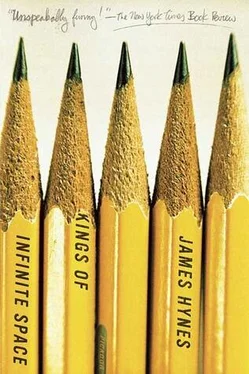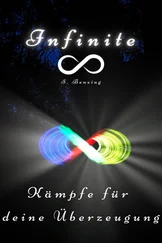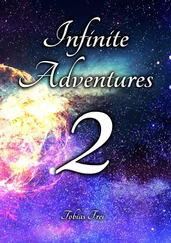“Alright, I’m leaving now,” he said aloud, lifting the anthology off the table. “Um, thanks, I guess.”
He turned and carried the book out of the apartment, pulling the door shut after him and twisting the knob to make sure it was locked. Then he hobbled to his car, hauled open the screeching door, and settled himself behind the wheel. He turned to drop the book on the passenger seat, and there sat Charlotte, looking nearly as she had done when she was alive, her paws tucked neatly under her, her tail curled all the way around her. She looked up at him with her indifferent gaze.
“Well, this is new,” said Paul. He tossed the book behind the seat, onto the heap of boxes. He glanced at Charlotte and shrugged. He started the car, and the engine clattered to life, the metallic banging from the undercarriage bouncing off the walls of the Angry Loner Motel. He laid his hand on the gearshift and looked back through the rear window, but then he sagged in his seat and sighed, the car vibrating noisily under him. He looked down at the ghost of a cat beside him.
“You still hate me, right?” he said. “So why didn’t you let them kill me? Do you care if I live or die, or are you just being territorial?”
Charlotte did not move or make a sound, but she watched him steadily.
“Okay, I get it,” Paul went on. “It’s not that you don’t want me to be tormented, you just don’t want anybody else to do it.” Paul narrowed his gaze at her. “Or is it possible you didn’t want anything to happen to Callie, and I just rode along in her slipstream. Is that it? Do you love Callie? Is that even possible?”
The car chugged almost expectantly under him. Jesus H. Christ, he thought, I’m talking to a cat. Hell, I’m talking to a dead cat. He looked down at Charlotte, curled calmly on the seat. It occurred to him that she might even be purring, but he’d never be able to tell over the racket of the car. He wondered what she’d do if he touched her and decided that it probably wasn’t a good idea to try.
“Never mind,” he said, his fingers curled round the gearshift. “Forget I asked. Screw it. Because you know what, Charlotte?” He settled himself firmly in his seat and gave her a defiant look. “I don’t care. You do whatever you want, and I’ll do whatever I want. It just doesn’t matter anymore. Whether you’re real or imaginary, whether you haunt me in public or in private, I just don’t care . You want to know why, Charlotte?”
She was watching him wide-eyed. Her tail had come uncurled, and it lashed back and forth across the worn corduroy of the seat.
“Because in the last four weeks, Charlotte, I have seen it all . Of all the strange things that have happened to me in my life, you’re not even at the top of the list anymore. Okay? Got that?”
He leaned towards her, brandishing his index finger.
“Whatever you do,” he said, “wherever you follow me, there’s not a single goddamn thing you can do to surprise me anymore. Not one.”
Charlotte yawned, splitting her sharp little muzzle nearly in two. She blinked up at Paul.
“Shut up and drive,” said the cat.
THE AUTHOR IS GRATEFUL TO H. G. Wells for the Morlocks and the Beast Folk; to Henrik Ibsen for the Boyg and a few lines from Peer Gynt; to Lady Mary Wroth (1587?—1651?) for her “Crown of Sonnets Dedicated to Love”; and to Edvard Grieg for the incidental music to Peer Gynt , especially “In the Hall of the Mountain King.” He’s also extremely grateful to Neil Olson, Mimi Mayer, Keith Taylor, John Marks, Gretchen Wahl, Becky McDermott, Martin Lewis, Ross Orr, and Josh Kendall. And it wouldn’t be a proper Author’s Note if he didn’t thank his two cats, Conrad and Hobbes, who carry on the spirit of Charlotte, sprawl across his keyboard, and (lucky for him) keep their opinions to themselves.












